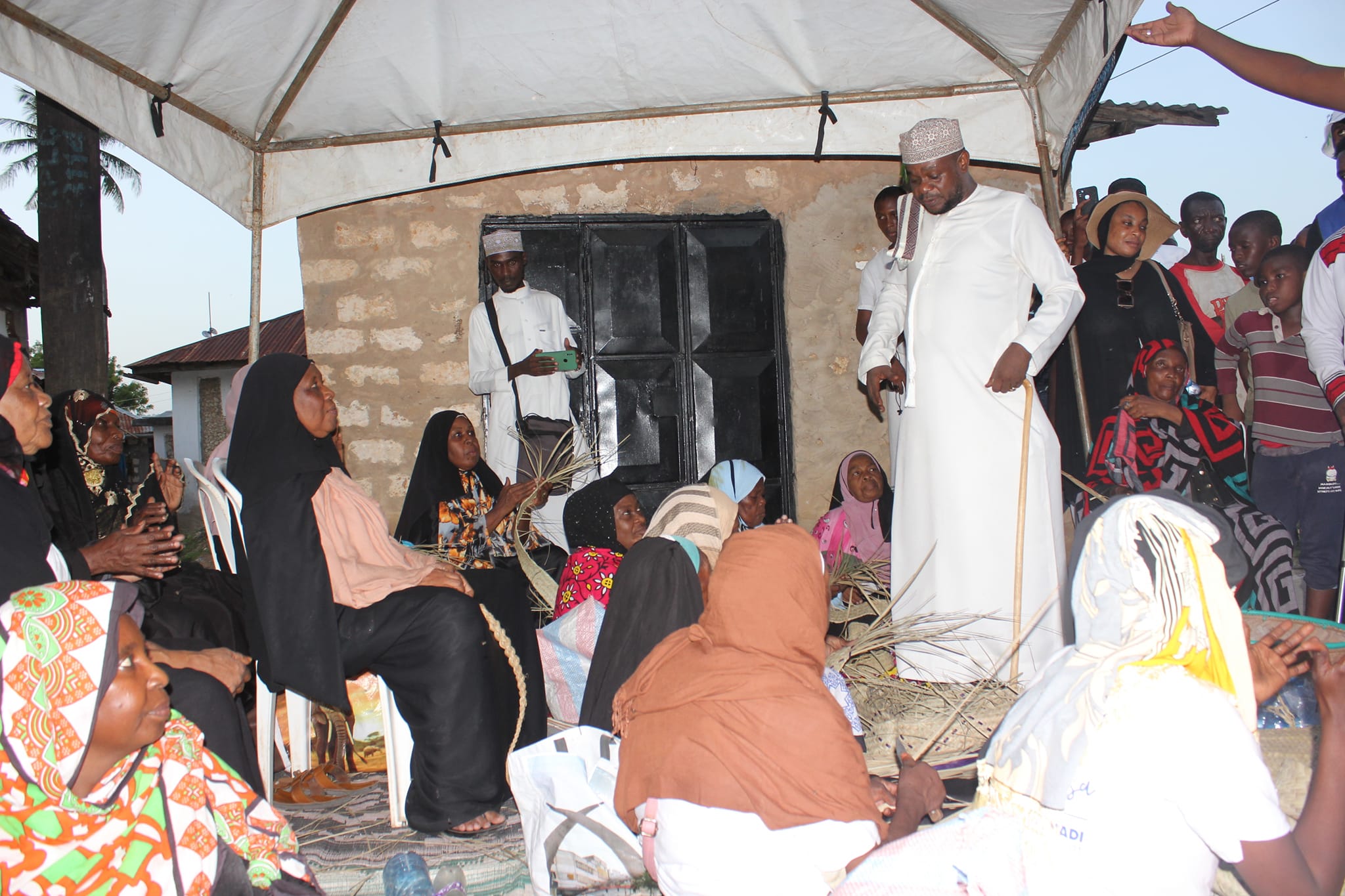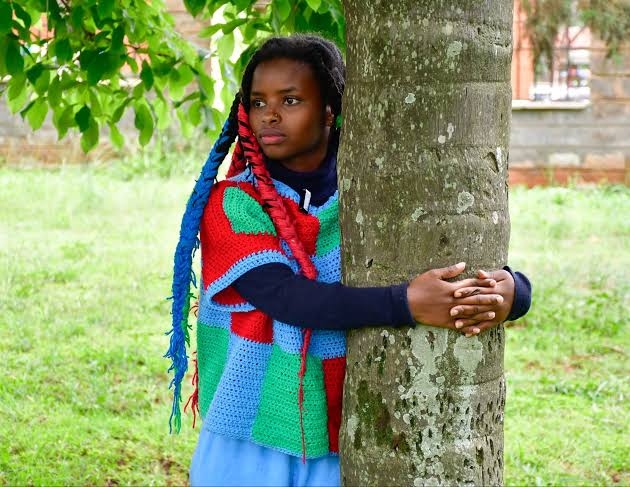
 Jomvu MP Badi Twalib watches Jomvu women weave baskets at the Jomvu Cultural Festival on Sunday / BRIAN OTIENO
Jomvu MP Badi Twalib watches Jomvu women weave baskets at the Jomvu Cultural Festival on Sunday / BRIAN OTIENOThe Jomvu community in Mombasa has called for more recognition from the government, saying they are a minority tribe whose culture and norms are often ignored.
Speaking on their behalf, Jomvu MP Badi Twalib said the minority community does not have representatives in many places in government circles.
“The Wajomvu are a minority tribe in Kenya and time has come for us to be recognized by the government of Kenya,” he said.
Twalib said many people have been doubting the existence of the Jomvu community in Mombasa, but their cultural festival held on Saturday in Jomvu constituency proved that they exist.
“This is a plus for us the Jomvu community. People used to say that we do not exist anymore. This is clear message that we are here and we exist and thrive in Kenya,” he told the Star on the phone Sunday.
A sub-tribe of the Swahili found in the Coastal region, the Wajomvu community is predominantly found along the coastline in Jomvu Kuu in the Jomvu constituency and parts of Kisauni constituency.
Their women are famous for moulding pots using clay sand and incense sticks.
The craft is passed from one generation to the next.
On Sunday, Twalib called on the community to unite and speak up with a louder and stronger voice.
“If we speak in unity, our voice will be louder, and the national government will have no choice but to listen to us.
“Already, the Mombasa county government has recognized as because Governor Abdulswamad Nassir has put our cultural festival in the county’s yearly events henceforth. We thank him for that,” Twalib, the patron of the community, said.
The MP is now lobbying for a Wajomvu Cultural Centre to showcase traditions and cultural heritage of the community.
“In the tourism circuits, tourists must also go to the Wajomvu Cultural Centre just as they go to Fort Jesus, Gedi Ruins, Akamba Handicraft, and other tourist attraction sites,” Twalib said.
He said the cultural centre will open up business for the Jomvu community members who are known for their pottery and weaving.
“Traditional pottery will be done in large scale because there will be a market for the products, including an international market,” he said.
The MP said he will lobby to also have the centre equipped with modern machinery to make weaving and pottery faster and more convenient.
The Sunday festival was graced by MPs from Tanzania, Kenya, Uganda, and Burundi, who all marveled at the showpiece.
Twalib said the Wajomvu are 100 per cent Muslims, something he noted many people are afraid of mentioning.
“So they exercise their traditions and cultures with adherence to Islamic values,” he said.
Mwanahawa Mohamed, a community member, gave the history of the Jomvu community saying they became potters out of need for food.
“There were two sisters who used to live in a place with a lot of clay. One day as, one of them was making forms using the clay, an idea came to them,” Mohamed said.
They divided duties, one harvesting clay, while the other prepared it to make it soft.
The two then moulded different things, mostly pots.
As they carried the pots home, some traders fell in love with the pots’ beauty and artwork.
“The traders then asked that they be given the pots in exchange for food. That is how they started commercializing the pottery business,” Mohamed said.
The pottery business then was passed down through generations.
“This is the business that has raised us, educated us and fed us,” Mohamed said.
The main market for the pots is at Mwembe Tayari.
She said the pots made of clay preserve food for a long time and keep water cold.
She said pots do not cause any diseases like modern materials like sufurias do.
“In the past, people were strong because they used such items like pots to cook food. Today, people use sufurias, which cause diseases like cancer,” she said.
Mohamed said today that young people are guilty of abandoning their cultures and preferring the Western traditions, which are harmful to the morals of African traditions.
“Today, youth do not want to touch clay saying clay is mud and will dirty them. They do not know this is a business that can make them thrive.
“They say they are educated and cannot play with clay. They want a pen and a paper to sit on a table and write,” she said.
Mohamed noted that pots are still in business, but business has gone down.
“It would be great of the government helped us preserve our traditions and cultural heritage. The government can alsom look for better markets for us,” she noted.
She said the market at Mwembe Tayari is small and not known, thus only a few customers come for the goods.
















